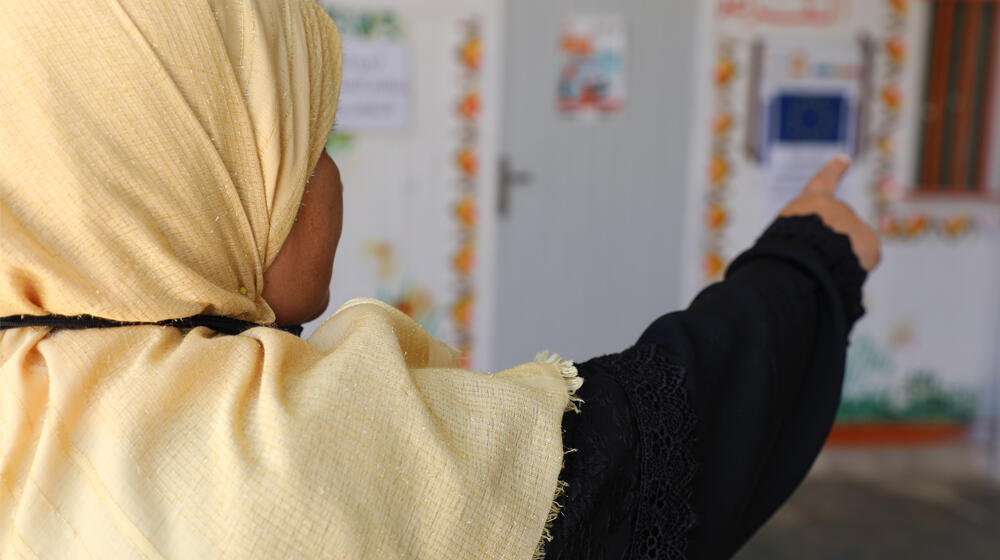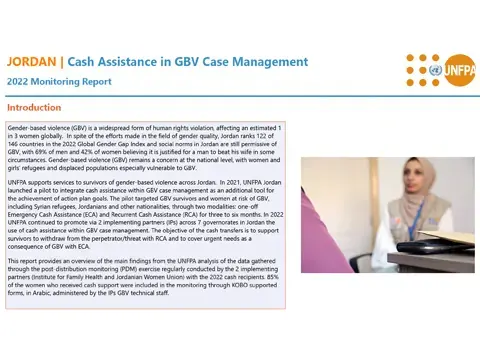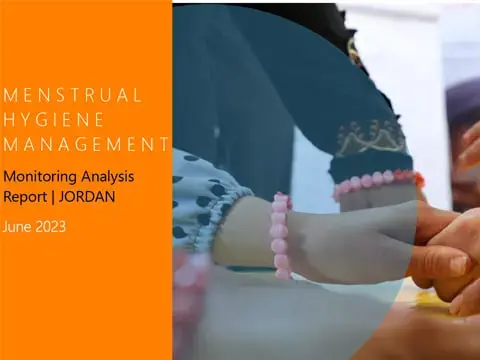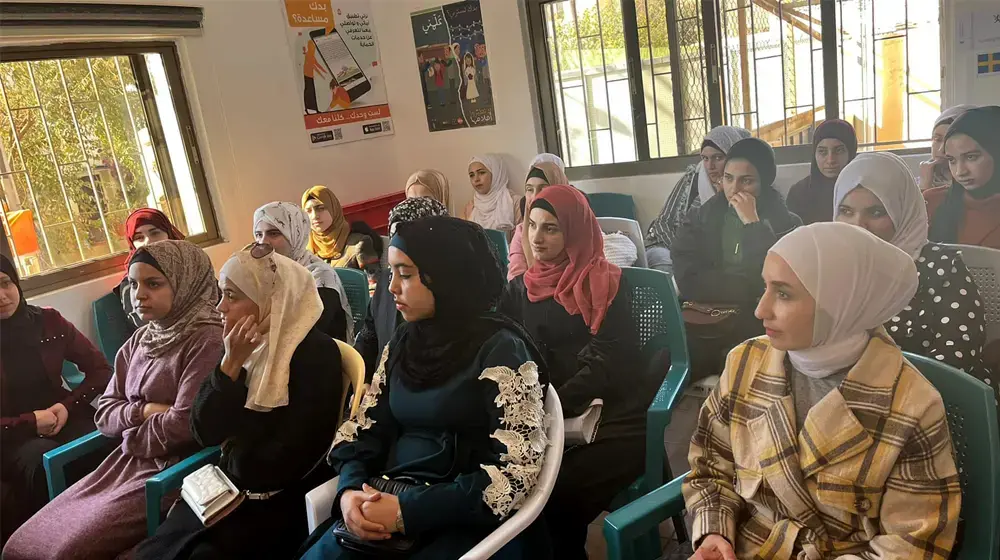Even after fleeing the bombing in Deraa to Jordan for safety in 2012, with her husband and three children, Dalal never felt safe. Her husband became abusive especially after he resorted to alcohol and drugs.
“I feared for my life. He used to beat me a lot and often threatened to strangle me,” said Dalal, a 44-year-old woman living in Zaatari camp. “He sold whatever he could lay his hands on including the gas cylinder to buy drugs.”
In a protracted conflict, refugee women like Dalal remain at a greater risk of gender-based violence (GBV), even after fleeing the war, according to the latest GBV IMS report published by UNFPA and partners in 2020. For seven years, Dalal continued to endure the insults, the abuse and sexual violence that devastated her and shattered her self-esteem.
“I hated myself and I wanted to die. My confidence was shaken, and I was very lonely,” she expressed.
Dalal had no idea that a visit by two volunteers, going door- to-door to raise awareness about services offered at the Women and Girls Safe Space (WGSS) in the camp would change her life forever. 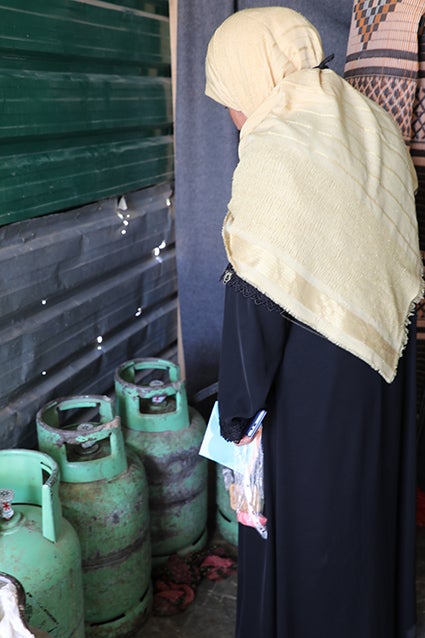
The spaces are part of a UNFPA program against GBV. In fact, the program seeks to curb the impact of GBV among refugees, and it is implemented through UNFPA’s partner, the Institute for Family Health (IFH).
The institute operates 19 Women and Girls Safe Spaces (WGSS). They offer survivors of GBV case management services, psychosocial support sessions (PSS), referrals to different services including sexual and reproductive health and legal assistance. They also include income-generating, recreational and empowerment activities. In 2020, these services reached 58,963 beneficiaries.
“The volunteers told me about the psychosocial support and awareness sessions and encouraged me to go to the center,” Dalal indicated. The volunteers who conducted the visits were from the outreach team of IFH.
The next day, a counselor invited her to attend an awareness session at IFH. There, Dalal learned about the different types of GBV which could result in physical, sexual, or emotional suffering against women.
After assessing her needs and concerns, the counselor put in place an action plan for Dalal, which included individual counseling sessions.
She reassured me that our sessions are confidential. I felt safe and then I vented my heart out.... I forgot about my fears
Said Dalal.
The psychosocial support sessions Dalal received helped her overcome the depression and anxiety.
She confessed, “I became a different person. I used to lose my temper quickly, but now I am calmer. I became outgoing and started mingling with people. I even started laughing”.
Dalal also felt empowered. For the first time, she learned that she had a choice.
“After the sessions, I felt brave enough to ask for a divorce,” she said.
In February 2019, Dalal filed for divorce after she was referred to the Arab Renaissance for Democracy and Development, a local NGO that provides legal aid. Her divorce was final in only a couple of months.
Moreover, she was granted custody of her children, who are aged six to thirteen.
“I no longer feel that I am stressed out. Indeed, I feel safe now,” she emphasized.
Lina Batayneh, the counselor from IFH, who helped Dalal heal, indicated that the psychosocial support sessions had a positive impact on her.
“I saw a big change in Dalal. We started from scratch and the individual sessions helped her overcome her fears and anxiety. At the same time, she became well-equipped to handle the stresses of her everyday life,” the counselor highlighted. “She learned to say no without the associated guilt that accompanies survivors of GBV. She can always seek the help she needs,” she added.
After receiving psychosocial support, Dalal felt strong enough to start her own project; selling refilled gas cylinders in her neighborhood in return for a modest profit.
“It helps with the expenses, especially when there is a high demand in the winter,” said Dalal confidently.
Despite her daily struggles to make ends meet, Dalal remains adamant in helping other women who suffer from GBV at Zaatari camp.
“I started lecturing other women who complain about abuse. I tell them there are services available that can help change their lives,” she concluded.
########
The Institute for Family Health (IFH) is the national implementing partner of UNFPA- Jordan. The institute run Women & Girls Safe Space in Zaatari Camp.
EU Humanitarian Aid is the kind donor that supports the Reproductive Health Clinicو as well as the Women & Girls Safe Space in Zaatari Camp.

